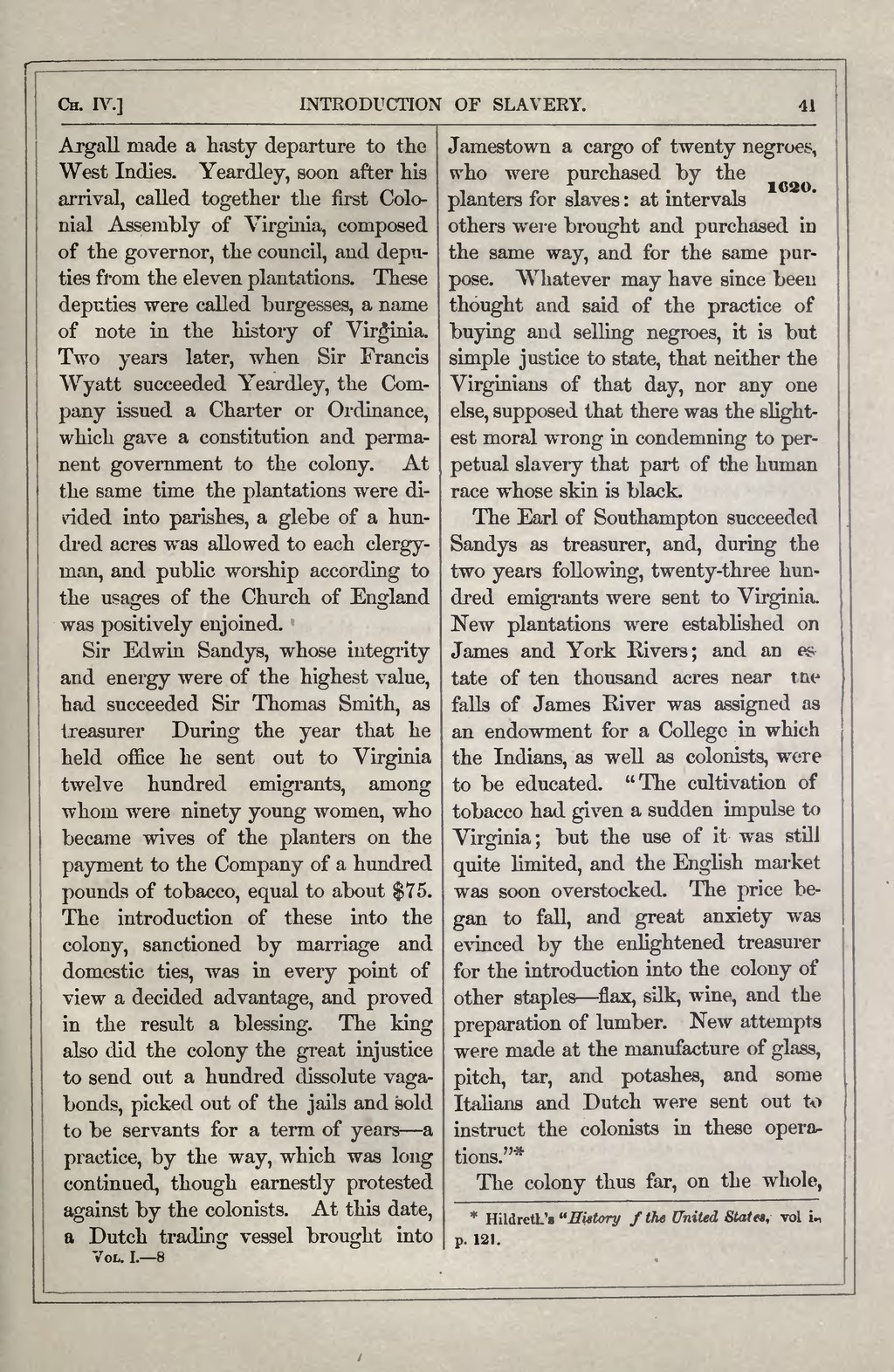Argall made a hasty departure to the West Indies. Yeardley, soon after his arrival, called together the first Colonial Assembly of Virginia, composed of the governor, the council, and deputies from the eleven plantations. These deputies were called burgesses, a name of note in the history of Virginia. Two years later, when Sir Francis Wyatt succeeded Yeardley, the Company issued a Charter or Ordinance, which gave a constitution and permanent government to the colony. At the same time the plantations were divided into parishes, a glebe of a hundred acres was allowed to each clergyman, and public worship according to the usages of the Church of England was positively enjoined.
Sir Edwin Sandys, whose integrity and energy were of the highest value, had succeeded Sir Thomas Smith, as treasurer During the year that he held office he sent out to Virginia twelve hundred emigrants, among whom were ninety young women, who became wives of the planters on the payment to the Company of a hundred pounds of tobacco, equal to about $75. The introduction of these into the colony, sanctioned by marriage and domestic ties, was in every point of view a decided advantage, and proved in the result a blessing. The king also did the colony the great injustice to send out a hundred dissolute vagabonds, picked out of the jails and sold to be servants for a term of years—a practice, by the way, which was long continued, though earnestly protested against by the colonists. At this date, a Dutch trading vessel brought into Jamestown a cargo of twenty negroes, who were purchased by the planters for slaves: at intervals others were brought and purchased in the same way, and for the same purpose. Whatever may have since been thought and said of the practice of buying and selling negroes, it is but simple justice to state, that neither the Virginians of that day, nor any one else, supposed that there was the slightest moral wrong in condemning to perpetual slavery that part of the human race whose skin is black.
The Earl of Southampton succeeded Sandys as treasurer, and, during the two years following, twenty-three hundred emigrants were sent to Virginia. New plantations were established on James and York Rivers; and an estate of ten thousand acres near the falls of James River was assigned as an endowment for a College in which the Indians, as well as colonists, were to be educated. "The cultivation of tobacco had given a sudden impulse to Virginia; but the use of it was still quite limited, and the English market was soon overstocked. The price began to fall, and great anxiety was evinced by the enlightened treasurer for the introduction into the colony of other staples—flax, silk, wine, and the preparation of lumber. New attempts were made at the manufacture of glass, pitch, tar, and potashes, and some Italians and Dutch were sent out to instruct the colonists in these operations."[1]
The colony thus far, on the whole,
- ↑ Hildreth's "History of the United States. vol. i., p. 21.
